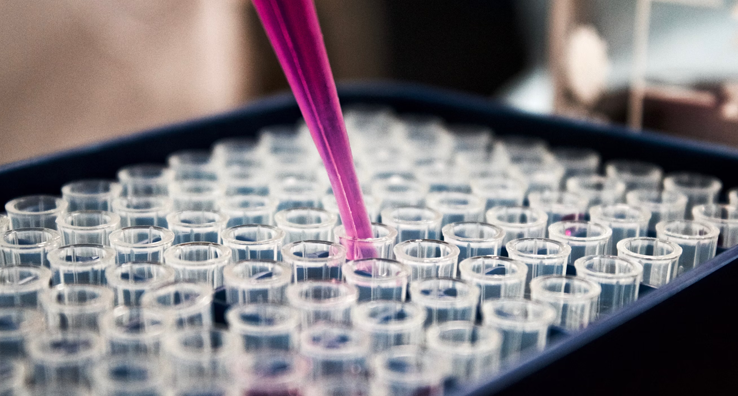A unique range of bioanalytical technologies including LC-MS, ICP-MS, NMR, CE and GC-MS to provide the most appropriate bioanalysis methods which overcome clinical sample matrix challenges
Applying the most appropriate bioanalytical technologies is central to the success of each bioanalysis study. Complex products and diverse sample matrices can require an innovative approach to establishing appropriate methods in order to generate regulatory-driven bioanalytical data in order to help you meet your next milestone.
Our innovative use of bioanalytical technologies such as quantitative liquid chromatography-mass spectrometry (LC-MS/MS) and immunochemistry ensures that our experts can accommodate the chemistry or biology of your analytes as well as any matrix interferences across a diverse array of biological samples - no matter how complex - including plasma, blood, serum, urine, faeces, spinal fluid, skin, muscle, artery, myocardium, liver and kidney, and a variety of tumour types.
At Intertek, we have developed expertise in adapting other, less traditional bioanalytical techniques in order to help our clients overcome the challenges that they are facing during preclinical or clinical development. In particular, we have specialist expertise in LC-MS/MS and capillary electrophoresis (CE) applied to bioanalysis of oligonucleotide therapeutics, and bioanalytical nuclear magnetic resonance spectroscopy (NMR) which is ideal for PEGylated materials in biological matrices, particularly regarding quantitation. We also offer Inductively Coupled Plasma Spectroscopy with Mass Spectrometry (ICP-MS) to determine trace levels of metals and other inorganic elements in biological matrices.
We understand that each project presents its own unique challenges, and by applying our 20 years of experience in conducting regulatory bioanalytical studies, our teams work closely with you to ensure that the best possible solutions are delivered, optimizing value for your programs. Our expert teams apply these technologies to bioanalysis studies that meet the requirements of Good Laboratory Practice (GLP) or Good Clinical Practice (GCP).
Additional Bioanalytical Technologies:
- Gas Chromatography - Mass Spectrometry (GC-MS) can be applied to study volatile species
- High Performance Liquid Chromatography (HPLC) with UV detection
- Transmission Electron Microscopy (TEM) is particularly useful to image clinical tissue samples, by enabling examination of the internal structure of a cell (cell ultrastructure) and to identify cellular features such as organelles, nucleolus and mitochondria.
Discover our services
- In vitro Toxicology Screening Services to Help Minimise Liabilities and Inform Drug Development Strategies
Learn more - Drug Tolerance Assessment and Improvement in Cell Based NAb Assays Using Response Data Modeling
Learn more - Bioanalysis and Toxicology Challenges with ADC: How are They Different and New?
Hosted by the Bioanalysis Zone
Learn More - Overcoming Challenges in the Development and Validation of Biologics and Small Molecules in Ocular Tissues
Hosted by the Bioanalysis Zone
Learn more - Impact of Recent Changes to FDA Immunogenicity Draft Guidance
Hosted by the Bioanalysis Zone
Learn more - Additional webinars
RESOURCES
Brochure Downloads:
White Paper Downloads:

